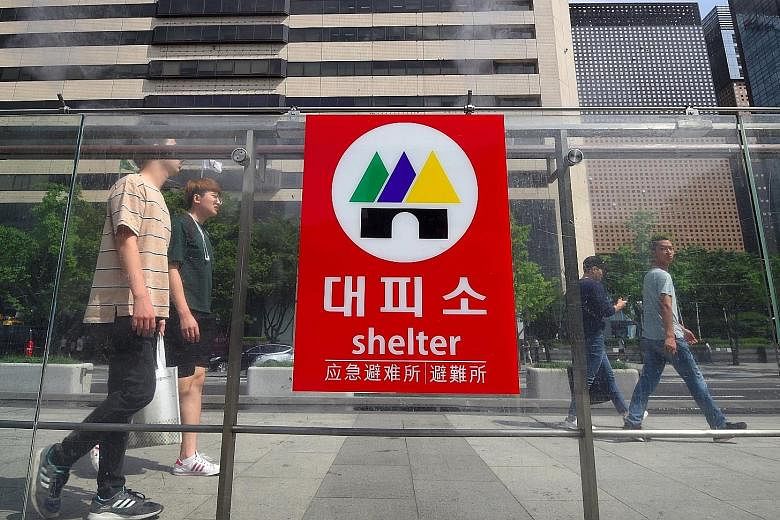SEOUL • To South Koreans, North Korea has never been a foreign country. Despite the war six decades ago and occasional military conflicts with it thereafter, North Koreans were always "brethren" to those in the South who share the same history, culture and language.
Even at the height of inter-Korean tensions, there were always people in the South who sympathised with the sufferings of those across the border. This complex sentiment towards North Korea is now giving way to a more hawkish one, as the communist regime under leader Kim Jong Un has been stepping up military provocations.
Many interviewed by The Korea Herald expressed anger and frustration at how a peace-loving nation, which has abided by rules and stayed away from nuclear weapons, has become more vulnerable, while the North made headway in becoming a formidable military power.
"Now that North Korea appears to be equipped with nuclear arms, I believe we also need to have the same power to stop the North," said office worker Yu Young Eun.
A poll by Gallup Korea on Sept 5 - after the Sept 3 nuclear weapons test by the North - shows a clear sign of hardening attitudes among South Koreans. Of 1,004 respondents, 76 per cent considered the sixth atomic detonation a threat to security, while only 20 per cent said it was not a threat.
The poll also shows that more people want stronger measures to pressure the North, with 60 per cent approving of South Korea possessing nuclear arms and 35 per cent opposing the idea.
What is more surprising, perhaps, is that more South Koreans even said that humanitarian aid should be cut if the North does not give up its nuclear programme.
Experts said the gradual change in public sentiment reflects disappointment towards North Korea, which South Koreans once considered their "northern brother" after the painful separation.
"The liberals, who were thought to be relatively more friendly towards the North, are now turning their backs, as they see their northern neighbour is not so brotherly anymore," a Gallup Korea researcher said. "Despite President Moon Jae In's suggestions for dialogue and peaceful approaches, the North is not taking the kindness and has only become a threat."
THE KOREA HERALD/ASIA NEWS NETWORK

